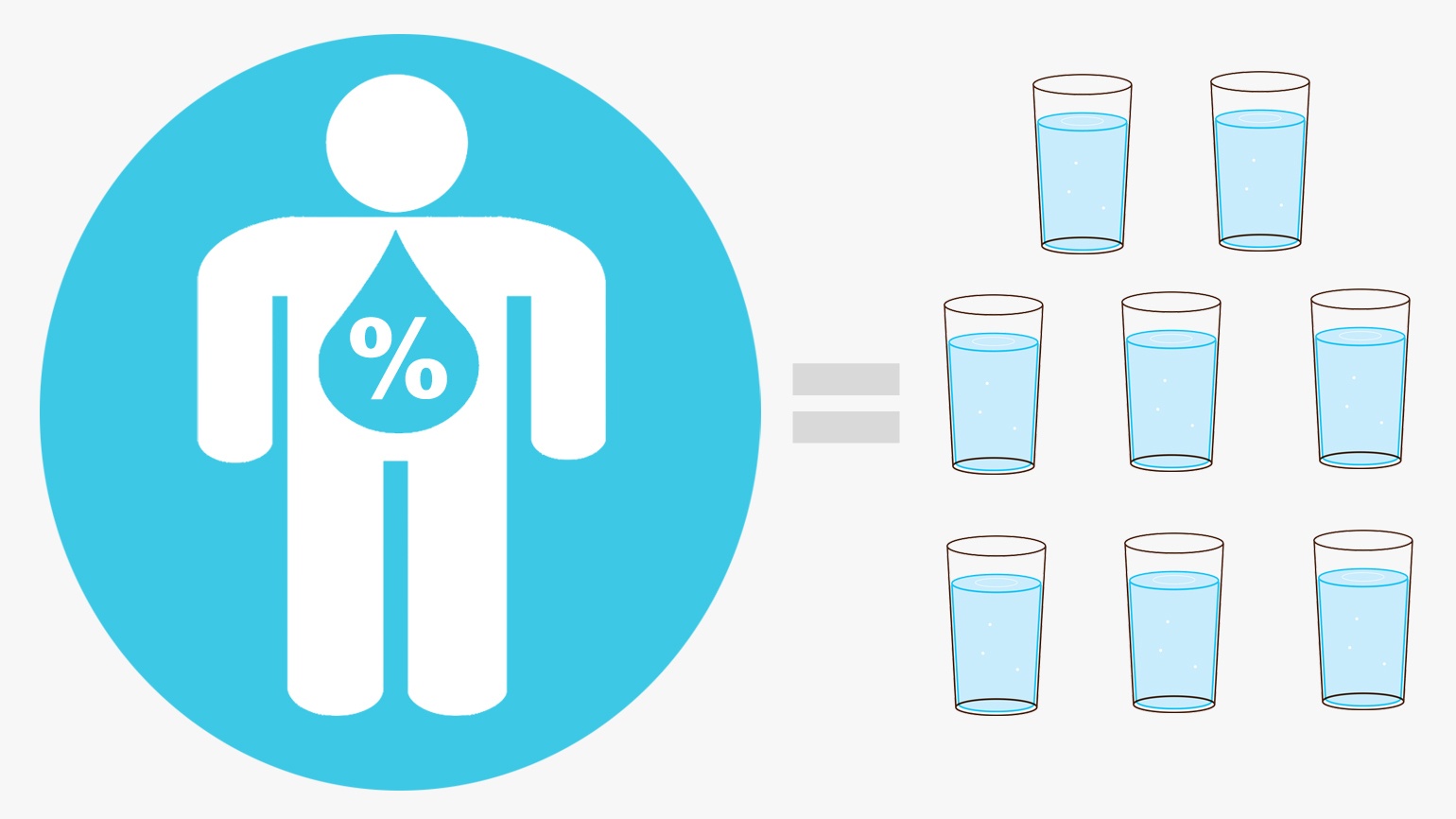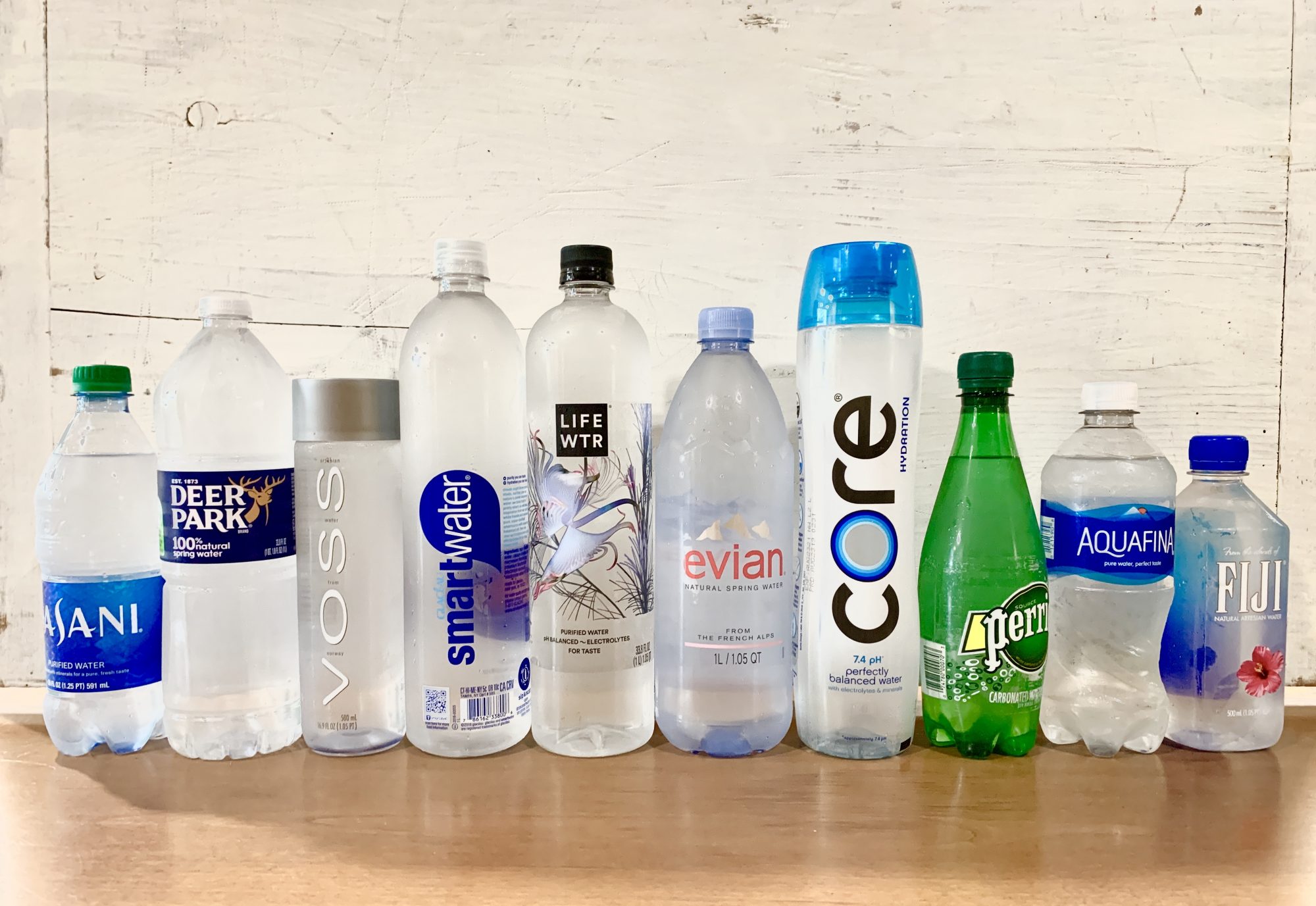Water is called life, and human body cells are mostly water. It has always been in consideration that drinking plenty of water is never wrong. But considering reality, too much of anything can be of no good at all.
You might be wondering that all your life you have heard good things about drinking more water, and suddenly this article is questioning all of that, saying too much of it is of no good. Well, We are not, and we can not either deny that drinking lots of it is beneficial for our health.
It is indeed a fact that if we drink more, then we will have better skin, will be more energized than usual, will have better bowel movements, and will be less hungry. But in reality, too much of it in the body means not enough sodium; a dangerous health condition called hyponatremia.
Then the question arises, exactly how much of it is considered proper for the human body? This article is precisely about that. Here, you will know how much water is too much for the human body to handle. We will also discuss the side effects of drinking more than usual, the risks of drinking too much of it, facts about overhydration, and how to prevent it.
Table of Contents
What is Overhydration?
Having too much water in the human body is called overhydration, which results in vomiting and body imbalance. In the worst-case scenario, confusion, seizures, or coma also occurs. To be specific, overhydration takes place when an individual intake too much of it within a short time.
Although with healthy kidneys, this is rarely to occur, it is not like it doesn’t happen either. Overhydration is a normal thing for athletes and patients with kidney, liver, or heart diseases (their kidneys do not excrete urine naturally). Athletic people who drink more of it than usual to keep them hydrated are at high risk. Some drugs can also cause overhydration; antidepressants are one of those.
Water Intoxication- Consequence of Overhydration
We all have heard in our school science class that the human kidney is nothing other than a filter that filters water. That was not bogus at all. Human kidneys indeed filter out excess waste and water from the bloodstream. But there is a limitation in the kidneys’ capability to process water.
It can only process eight hundred to a thousand (800-1000) milliliters of it an hour. As a result, if we somehow manage to drink more than that without throwing up, that is where all the trouble starts. As all we are doing is nothing but consuming faster than our kidneys are capable of processing.
So, the excess water ends up in our body cells. Usually, our cells are surrounded by a carefully balanced solution of sodium and water, which flows in and out through small holes in the cellular membrane. Hence, it keeps the sodium concentration both in and out of the cell balanced.
But when we drink too much of it, the sodium solution gets diluted; it becomes not salty enough for the cells. So, some excess of it rushes into the cell to restore balance causing it to swell up. This particular condition is called water intoxication by doctors.
According to doctors, water intoxication is quite a big problem because it is fatal. When it comes to human body cells, most of ours can handle the swelling to a degree except for the cells in our brain. Because soft, flexible tissue like fat and muscle can stretch, but for the cells in our brain, it is another story as our skull is not stretchy.
Human-skull is all bone; it is as hard as a rock. So, as our brain swells, it builds up pressure in our head. Thus, we start to experience headaches, confusion, or drowsiness. But as the pressure increases, we risk brain damage, coma, and even death. On top of that, it could all be over in less than 10 hours.
Summary or Interesting fact:
When we drink more than we pee (within a short time), the body lacks sodium. Low sodium concentration in the blood is a condition that comes with overhydration as an associate. This condition refers to hyponatremia, which includes nausea, low body balance, headaches, etc. Hyponatremia means low salt in the blood.
Caution:
As mentioned earlier, athletic people are at high risk of water intoxication. To be specific, it is marathon runners who need to be extra careful. Because the race stresses their body, including their kidneys, they don’t excrete water very efficiently, which can cause it to go back into the blood more efficiently.
According to a 2005 Medicine journal study of New England, at least one-sixth of marathon runners experience blood dilution as they drink humongous amounts of water.
Real-life Story of Water Intoxication:
a) A 64-year old woman died the same evening after drinking between 30 to 40 glasses of water.
b) And a group of U.S. army trainees suffered vomiting and seizures because they downed over two liters per hour after a rough day of training.
c) A Californian woman (28 years old) named Jennifer Strange died due to water intoxication. It happened because she competed in a radio station contest. It was an on-air water-drinking contest. Initially, she just vomited after drinking six liters of it within three hours in the “Hold Your Wee for a Wii” (Nintendo game console contest). Later, she experienced a headache and eventually died from water intoxication.
d) In 2005, a 21 years old young man died in a cold basement. He was forced to drink lavish amounts of water during push-ups. The young man used to go to California State University, Chico. The incident took place in a fraternity hazing of the same.
e) Another place where people go overboard with it is none other than dance-clubs. Sweating is common there, so rehydrating is also a common scenario in dance-clubs. Club-going people who take MDMA (drugs) after downing enormous amounts of water have died due to water intoxication.
How Much Water is Too Much?
From this article, you already know that our body has a critical amount of salt or sodium in it. Added to that, we can just expel half a liter of water in an hour. That is the limit to what the kidneys can process. So, if we fill ourselves up with it well beyond the point that our kidneys can expel, it is nothing other than throwing off the proportion of salt or sodium required by our bodies.
How Much You Should Drink in a Day?
Drinking gallons of water these days has almost become trendy. Although most of us are dehydrated and not over hydrated but the intake scale should be balanced out. Because nowadays, office-going people who sit at their desks all day; force themselves to chug as many glasses of it as they can. Then again, there are some young kids who frequently drink tons of it with the hope of clearing out their skin. So, a proper intake scale should be there to avoid water intoxication or overhydration.
More or less, we have all heard the advice to drink eight glasses of water a day. But do we know where that comes from? Well, a minimum requirement seems to have first been introduced in 1945. The food and nutrition board of the national academy of sciences published their dietary guidelines then. Later, Fredrick John Stare, a nutritionist, co-authored a book where he suggested drinking at least six glasses a day.
But exactly how much of it do we need to drink per day depends on several factors like urine, age, sex, diet, activity level, and lifestyle.
-
Activity Level:
The most important thing we need to consider when deciding our hydration status is our activity level. For example, if one is exercising in a scorching environment, he or she will need more of it to make up for the liquid losses that he or she is experiencing being in a heated environment.
- Sex:
Women-body has a lower water percentage than men as they have more tissue than men. As a result, its intake also varies for men and women. According to the U.S. National Academies of Sciences, Engineering, and Medicine, a man should drink 15.5 cups of water, which is (3.7 liters) a day. Whereas a woman should drink 11.5 cups of water (2.7 liters) a day.
-
Diet:
Foods like fruits (Summer fruits) and vegetables contain a significant amount of water content. For example, cucumber and watermelon have a considerable amount of it that does hydrate an individual.
- Life Style:
Incorporating lifestyle into water intake choices is essential. Where you usually live, what type of job you do, how much you exercise (activity level), even your genetics and propensities should determine how much of it you should drink in a day.
For example, a person with a physically taxing job living in a hot, humid city needs more water consumption than a person with an office-desk job living in a cooler climate.
-
Urine:
The color of urine tells a lot more than it may seem. And kidneys are the organs that are responsible for controlling the color of the urine. One of the waste products that our body creates is urea, and our kidneys release urea throughout the day. As a result, when we stay well hydrated, our urine looks clear or pale yellow. Whereas when we are dehydrated and our kidneys are trying to hold on to as much fluid as possible, the urine looks quite dark.
To be specific, if an individual goes to the loo many times a day and the urine color of his or her is clear every single time, this is a sign that the person is overhydrated.
Safe-play:
There is an easy way to stay safe and sound. The average healthy adult needs somewhere about three to four liters of water a day. This can come from different food and other drinks too. The critical point is to drink when you are thirsty and then stop.
Tips to prevent overhydration:
- It is a bad practice and pointless exercise to drink it when an individual is not thirsty at all. So, we should avoid it.
- If you want to, you can sip on water throughout the day, but you should not drink tons of it just for the sake of hydration.
- Incorporating your lifestyle into your choices. If you exercise a lot, then drink more of it than usual.
- Consuming fruits and vegetables that contain significant amounts of water.
Interesting fact:
Regular water is less hydrating than coconut water.
Exceptional Case- Pregnancy:
In pregnancy, a woman should be drinking more water than usual because that’s a physically demanding state for that woman’s body. When a woman is pregnant, the blood volume of her body is usually higher; nausea and vomiting from morning sickness also cause dehydration. So, it is quite natural for a pregnant woman to drink plenty of it without the chance of intoxicated by it. We consider it an essential part of a healthy pregnancy to drink plenty of water and fluids.





